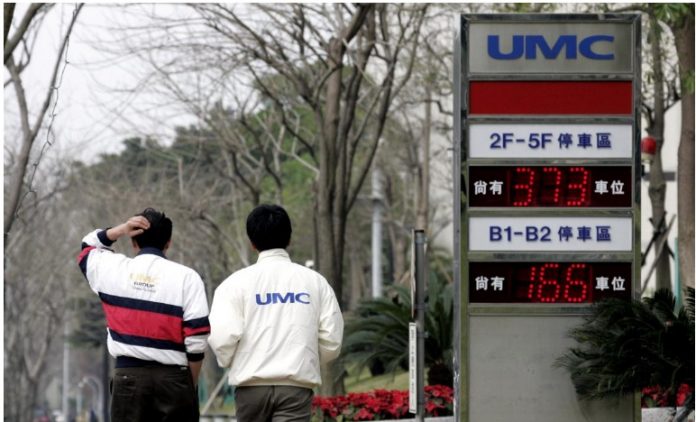
TAIPEI – Washington’s decision to cut off US supplies to a Chinese chip-maker spotlights mounting tensions over China’s drive to be a global player in computer chips and the ways in which Taiwan companies are helping it get there.
Shut out of major global semiconductor deals in recent years, China has been quietly strengthening cooperation with Taiwan chip firms by encouraging the transfer of chip-making expertise into the mainland.
Taiwan chip giant United Microelectronics Corp (UMC) last week halted research and development activities with its Chinese state-backed partner Fujian Jinhua Integrated Circuit Co Ltd, following the US move.
Taiwan firms such as UMC have helped supply China with a steady pipeline of chip expertise in exchange for access to the fast-growing chip market there.
China has faced a shortage of integrated circuit chips for years. In 2017, it imported $270 billion worth of semiconductors, more than its imports of crude oil.
At least 10 joint ventures or technology partnerships have been set up in the last few years between Chinese and Taiwanese firms, according to industry experts, luring Taiwanese talent with hefty salaries and generous perks.
“Such companies will need to also take care to ensure no patent or IP infringement is involved as the US has export control means to restrict support of critical technology,” said Randy Abrams, an analyst at Credit Suisse in Taipei.
Among the most valuable cross-strait partnerships for China would be ones that strengthen its foundry services and memory chip production. Those two sectors require much-needed help from overseas firms due to the complexity of the manufacturing technologies and intense capital requirements, analysts have said.
But the technology transfer between China and self-ruled Taiwan has raised concerns amid the Sino-U.S. trade war and escalating tensions across the Taiwan Strait.
China has aggressively used “market-distorting subsidies” and “forced technology transfers” to capture traditional and emerging technology industries, Brent Christensen, the director of America’s de facto embassy in Taipei, told a business gathering in late September.
Taiwan is one of the largest exporters of IC globally and many worry the island could lose a key economic engine to its political foe. (Reuters)



